Have you noticed your vehicle pulling to one side on its own? Does your brake pedal feel soft or spongy? These could be signs of a bad brake caliper.
While brake pads must be replaced periodically, calipers should last the life of the vehicle—but that doesn’t always happen. Calipers can eventually fail and compromise the overall safety of your car.
Being familiar with the symptoms of a bad brake caliper will help you address the issue right away.
What are the Symptoms of a Bad Brake Caliper?

Think you might have a bad brake caliper on your hands? If your car is exhibiting one or more of the following symptoms, you may be right.

Here’s how you can tell if your brake caliper has gone bad:
Pulling to one side
A seized brake caliper or caliper sliders can cause the vehicle to pull to one side or the other while braking. Sometimes the car will pull while driving down the road as well.
Fluid leaks
Brake calipers, which are activated by hydraulic fluid, can develop brake fluid leaks from the piston seal or bleeder screw.
Spongy or soft brake pedal
A caliper that is leaking can cause a spongy or soft brake pedal. Also, a seized piston or sticking sliders can create excessive clearance between the pad and rotor, causing abnormal pedal feel.
Reduced braking ability
Obviously, if you’ve got a faulty caliper, resulting in a soft brake pedal, your car will exhibit reduced braking ability.

Uneven brake pad wear
Uneven brake pad wear is often caused by sticking caliper slider pins. In some cases, a sticking caliper piston can also cause uneven wear. The reason being, in both scenarios, the pads will be partially applied, causing them to drag across the rotor.
Dragging sensation
Obviously, if you’ve got a faulty caliper, resulting in a soft brake pedal, your car will exhibit reduced braking ability.
A stuck brake caliper can cause the pads to be pressed against the rotor while driving. As a result, the car may exhibit a dragging sensation, since the brakes at the affected wheel are applied (or partially applied) at all times.
Abnormal noise
Eventually, a sticking brake caliper will wear down the brake pads. And when that happens, you’ll hear the familiar sound of grinding brakes.

What Does a Brake Caliper Do?
Brake calipers are fairly straightforward components. Most modern vehicles have a four-wheel disc brake system with a caliper at each wheel, while some cars have disc brakes with calipers in the front and drum brakes in the back.
When you push the brake pedal to apply the brakes, brake fluid flows to the individual calipers. The pressurized fluid forces a piston inside the caliper to squeeze a pair of brake pads against the brake rotor. Forcing the pads against the rotor creates the friction needed to bring your car to a stop.
Each caliper mounts (either directly or indirectly) to one of the car’s steering knuckles. A brake hose delivers pressurized fluid to the caliper.
Calipers also have bleeder screws that a mechanic can open to purge the brake system of air. They may have either one or two pistons, depending on the application.
There are two basic caliper designs: fixed and floating. Fixed calipers mount directly to the steering knuckle and do not move back and forth. Floating calipers (a.k.a. sliding calipers), on the other hand, mount to an adapter plate, which is bolted to the steering knuckle. A set of slider pins or bolts allow the caliper to slide back and forth as the brakes are applied and released.
How to Tell if a Brake Caliper is Bad
Other problems with your vehicle can mimic a bad brake caliper. That’s why it’s important to perform a thorough diagnosis if you suspect you might have a faulty caliper on your hands.
There are several methods for troubleshooting a faulty caliper. Depending on the problem you’re experiencing, you might want to check the caliper for leaks, inspect the brake pads for abnormal wear, or check the operation of the caliper’s piston. You might also want to perform a line lock test.
You can learn about the troubleshooting process by reading our article: How to Diagnose a Faulty Brake Caliper.

What to Do if You Think You Have a Bad Brake Caliper
Don’t gamble with your brakes. Period. A seized or sticking brake caliper can lead to partial or complete loss of braking ability. If your vehicle is exhibiting any of the symptoms above and you’ve pretty much determined that you do have a bad brake caliper, fix it right away.
Also, you may hear some people talk about rebuilding brake calipers. But it’s the 21st century and replacement calipers are cheap and plentiful—no one overhauls them anymore. Just get a new or rebuilt caliper. It’s much easier.
Check out these videos for tips on how to replace your brake caliper:
And if you don’t feel up to replacing the caliper yourself, have a professional do the job for you. Once again, you don’t want to take any chances with your brakes.
How to Find New Brake Calipers For Your Vehicle
It’s not a good idea to drive a vehicle with brake calipers that are damaged or worn out. On the bright side, it shouldn’t be too difficult to get a replacement that fits your vehicle with the help of CarParts.com.
The best part? You don’t even have to leave your home to get new brake calipers. Simply use your mobile phone or computer to visit CarParts.com. Use our vehicle selector and input your vehicle’s details. Make sure to input the exact year, make, model, and engine.
Our brake system components come from some of the most trusted manufacturers in the industry. On top of that, our warehouses are located all over the US, meaning you can receive your order within days.
Don’t let faulty brake components compromise the safety of your vehicle. Order a new set of brake calipers for your vehicle today.
Products Mentioned in this Guide
Any information provided on this Website is for informational purposes only and is not intended to replace consultation with a professional mechanic. The accuracy and timeliness of the information may change from the time of publication.

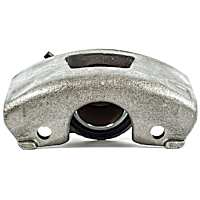 Brake Caliper
Brake Caliper
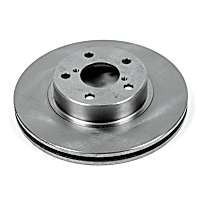 Brake Disc
Brake Disc
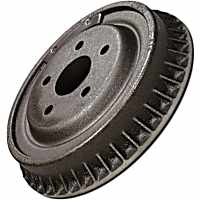 Brake Drum
Brake Drum
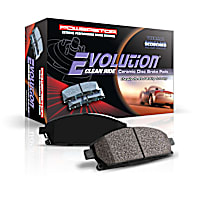 Brake Pad Set
Brake Pad Set



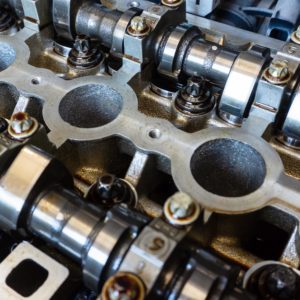










will a faulty caliper make a “doef” sound if you brake?
Hi Karen,
There are a lot of issues (ranging from worn-out suspension parts to brake issues) that can cause strange noises while braking. Mechanics have a tool called Chassis Ears that can help pinpoint weird noises. So, I recommend having a professional perform an in-person diagnosis on your vehicle.
-Mia, Chief Mechanic @ CarParts.com
I have a 2007 c230 Benz . While driving I’m hear a noise like something is loose when hitting any bump in the road . But the noise goes away when braking when going over pot holes or big bumps in the road. Brake pads and drums has been checked, I need help
Hi Terry,
There are many potential causes for your concern. We recommend having your vehicle diagnosed in person by a professional who will have access to equipment, such as electronic “chassis ears” to pinpoint the noise.